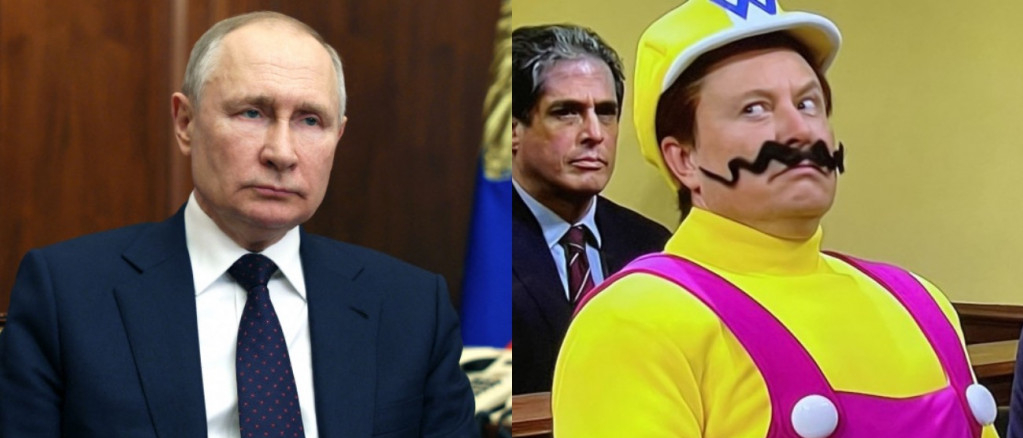When Ronan Farrow decides to bury himself in a subject, this usually doesn’t signal that positive news is on the way. Sure enough, Farrow’s latest investigative report has surfaced for The New Yorker, and it’s all about Elon Musk’s hands not only being in many pots but also in many U.S. government matters. Musk, of course, is even better known for his newest role of Twitter Owner/Chief Troll and being a bad neighbor. Oh, and he recently blew up a rocket, which is apparently something that does not worry him at all according to Farrow’s reporting, much of which involves direct statements from former Under-Secretary Of Defense At The Pentagon Colin Kahl.
More immediately crucial, however, is Farrow’s reporting on Musk’s influence in the Ukraine/Russia war. Yes, it’s as disturbing as it sounds, especially since Musk is a civilian. Yet he is a civilian who is a billionaire and does a lot of exclusive business with the U.S. Department of Defense (SpaceX is the only active means for manned U.S. trips into space), and those ties include SpaceX’s Starlink satellite internet service. We’ve all heard of Starlink, of course, and vaguely heard about the difficulties that Ukraine has had with Elon wavering on whether to keep providing access to troops.
Yet the situation reportedly grew dire, according to an anonymous Ukraine soldier, known as “Mykola,” who was tasked with making sure that Starlink was operational on Ukraine front lines. Mykola called the service “essential” to the Ukraine cause, and he noted that after Musk started publicly hedging about the war and worrying about upsetting Russia, the access to Starlink mysteriously died during a critical operation within Ukraine. As Farrow leads into the section, he wrote that “Musk’s sympathies appeared to be manifesting on the battlefield.” Reportedly, Starlink access evaporated without warning, creating a deadly situation:
By then, . One day, Ukrainian forces advancing into contested areas in the south found themselves suddenly unable to communicate. “We were very close to the front line,” Mykola, the signal-corps soldier, told me. “We crossed this border and the Starlink stopped working.” The consequences were immediate. “Communications became dead, units were isolated. When you’re on offense, especially for commanders, you need a constant stream of information from battalions. Commanders had to drive to the battlefield to be in radio range, risking themselves,” Mykola said. “It was chaos.” Ukrainian expats who had raised funds for the Starlink units began receiving frantic calls. The tech executive recalls a Ukrainian military official telling him, “We need Elon now.” “How now?” he replied. “Like f*cking now,” the official said. “People are dying.”
Fixing the situation proved to be tricky, and the Pentagon found itself attempting to figure out how to get SpaceX to agree that Elon “couldn’t wake up one morning and just decide, like, he didn’t want to do this anymore.” Kahl spoke with Musk to thank him about providing the Starlink service thus far and asked for Elon to help come to an agreement because “[I]f you cut this off, it doesn’t end the war.” In response, Kahl reveals that he learned how Elon Musk (he of the poop emoji) had privately spoken with Vladimir Putin, and yikes:
To the dismay of Pentagon officials, Musk volunteered that he had spoken with Putin personally. Another individual told me that Musk had made the same assertion in the weeks before he tweeted his pro-Russia peace plan, and had said that his consultations with the Kremlin were regular. (Musk later denied having spoken with Putin about Ukraine.) On the phone, Musk said that he was looking at his laptop and could see “the entire war unfolding” through a map of Starlink activity. “This was, like, three minutes before he said, ‘Well, I had this great conversation with Putin,’ ” the senior defense official told me. “And we were, like, ‘Oh, dear, this is not good.'”
This was probably around the time that Elon was running a Twitter poll to gather public opinion on how to best end the Ukraine/Russia war, as though Putin had nothing to do with his own invasion. And yeah, this looks more than bad. Starlink eventually did come back online in Ukraine, but SpaceX placed restrictions on its use by Ukraine drones. And Putin’s war keeps raging on, even as the Russian ruble has been nosediving.
The full Ronan Farrow piece dives into many other ominous Elon-related subjects including AI and is well worth a read at The New Yorker.
(Via New Yorker)

